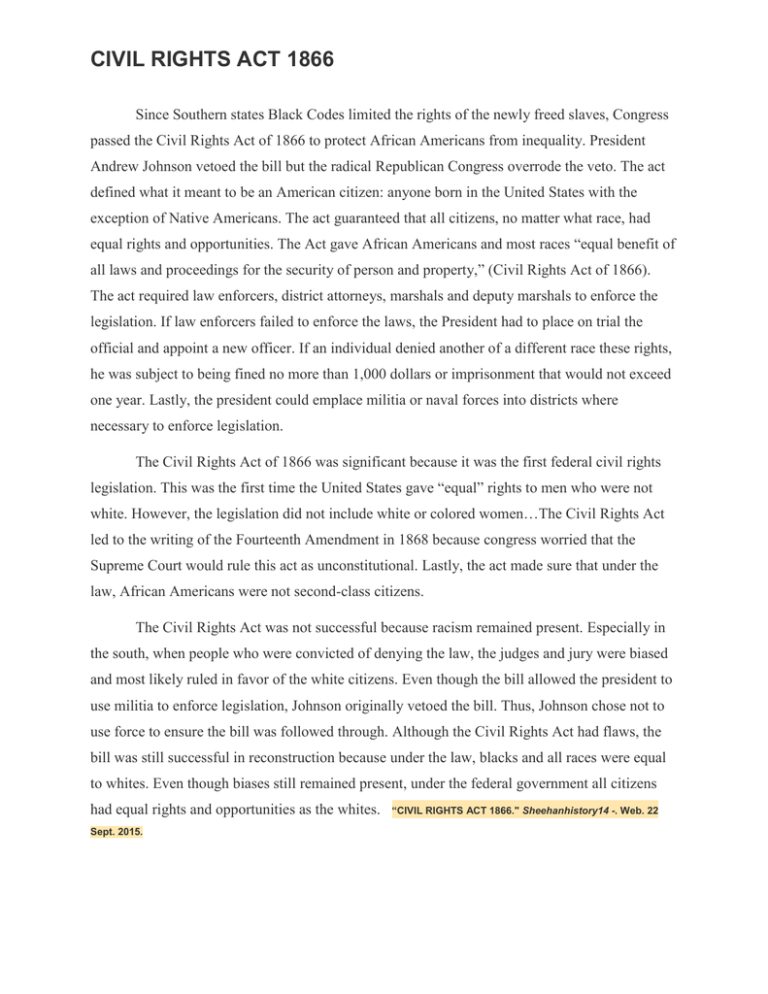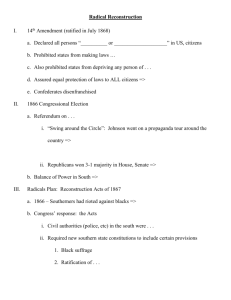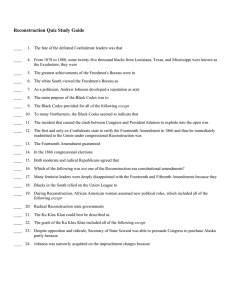CIVIL RIGHTS ACT 1866
advertisement

CIVIL RIGHTS ACT 1866 Since Southern states Black Codes limited the rights of the newly freed slaves, Congress passed the Civil Rights Act of 1866 to protect African Americans from inequality. President Andrew Johnson vetoed the bill but the radical Republican Congress overrode the veto. The act defined what it meant to be an American citizen: anyone born in the United States with the exception of Native Americans. The act guaranteed that all citizens, no matter what race, had equal rights and opportunities. The Act gave African Americans and most races “equal benefit of all laws and proceedings for the security of person and property,” (Civil Rights Act of 1866). The act required law enforcers, district attorneys, marshals and deputy marshals to enforce the legislation. If law enforcers failed to enforce the laws, the President had to place on trial the official and appoint a new officer. If an individual denied another of a different race these rights, he was subject to being fined no more than 1,000 dollars or imprisonment that would not exceed one year. Lastly, the president could emplace militia or naval forces into districts where necessary to enforce legislation. The Civil Rights Act of 1866 was significant because it was the first federal civil rights legislation. This was the first time the United States gave “equal” rights to men who were not white. However, the legislation did not include white or colored women…The Civil Rights Act led to the writing of the Fourteenth Amendment in 1868 because congress worried that the Supreme Court would rule this act as unconstitutional. Lastly, the act made sure that under the law, African Americans were not second-class citizens. The Civil Rights Act was not successful because racism remained present. Especially in the south, when people who were convicted of denying the law, the judges and jury were biased and most likely ruled in favor of the white citizens. Even though the bill allowed the president to use militia to enforce legislation, Johnson originally vetoed the bill. Thus, Johnson chose not to use force to ensure the bill was followed through. Although the Civil Rights Act had flaws, the bill was still successful in reconstruction because under the law, blacks and all races were equal to whites. Even though biases still remained present, under the federal government all citizens had equal rights and opportunities as the whites. Sept. 2015. “CIVIL RIGHTS ACT 1866." Sheehanhistory14 -. Web. 22





